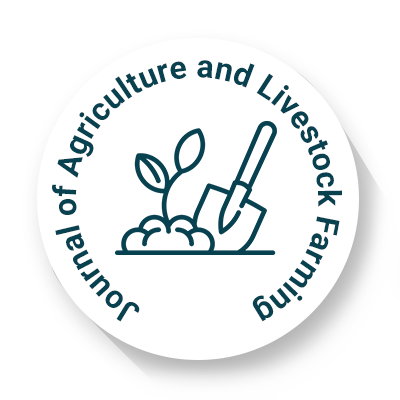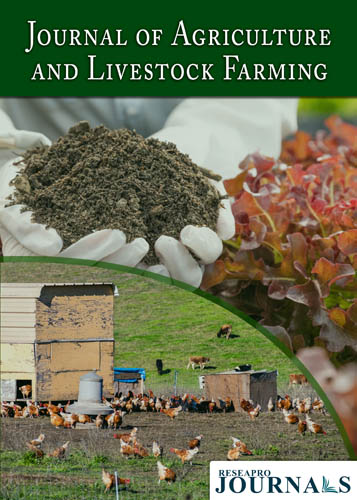
Journal of Agriculture and Livestock Farming
OPEN ACCESS

OPEN ACCESS

Department of Animal Nutrition and Feed Science, Swedish University of Agricultural Sciences (SLU), Uppsala, Sweden
Insect-based proteins are gaining traction as a sustainable alternative to conventional livestock feed ingredients, such as soybean meal and fishmeal, which are associated with deforestation, overfishing, and greenhouse gas emissions. Insects such as black soldier fly larvae (Hermetia illucens), mealworms (Tenebrio molitor), and crickets (Acheta domesticus) offer high protein content, efficient feed conversion, and can be reared on organic waste, contributing to a circular economy. These insect-based feeds possess favorable amino acid profiles and beneficial lipids, and show high digestibility and animal acceptance across species. Their role in improving animal health through gut microbiota modulation and antimicrobial properties adds further value. This mini-review highlights their nutritional value, performance outcomes in poultry, swine, and aquaculture, and examines their role in reducing the ecological footprint of animal agriculture. It also outlines the environmental benefits of insect farming, including waste valorization, emission reduction, and integration into mixed farming systems, while addressing current limitations such as regulatory gaps, safety concerns, and market barriers. Integrating insect meals into feed strategies not only supports productivity but also aligns with global sustainability targets and enhances climate resilience. With appropriate research, public awareness, and policy support, insect protein could become a mainstream component of sustainable animal agriculture.
Department of Animal Nutrition and Feed Science, Swedish University of Agricultural Sciences (SLU), Uppsala, Sweden